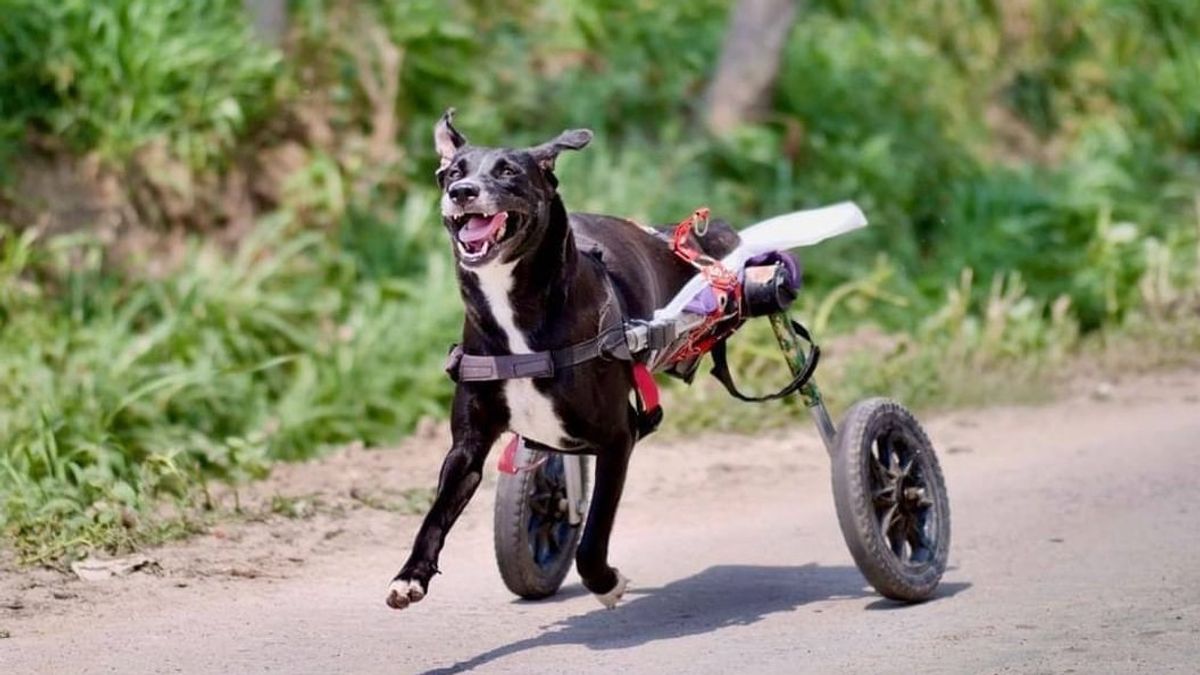JAKARTA - The sound of dogs barking, shouting along a rocky road in Chonburi Province, southeast of the Thai capital, Bangkok. They were nimble in running, maneuvering, with their tails wagging, while 'carrying' a pair of wheels tied to support their hind legs.
This is not a dog race or a speed race like the Bull Race. These dogs are disabled. Yes, they are disabled who need a pair of wheels to support them on their feet, walk and run.
A total of 27 dogs are being cared for at one of the shelters in Chonburi. Most of them are accident victims.

“It seems they don't know that they have a disability. "Once you put it in a wheelchair for the first time, it feels like there is no learning curve," said shelter officer Christopher Chidichimo told Reuters.
This shelter is run by a foundation called The Man That Rescues Dogs founded by a Swedish man who moved to Chonburi in 2002. He was so disillusioned with the plight of stray dogs that he started caring for them after work.
The future of these shelters is shrouded in question marks, as the COVID-19 pandemic has not ended, which has resulted in a decrease in donations of up to 40 percent. As well, cutting the number of foreign visitors.
"Donation is very important, volunteers and visitors are just as important, because they come and spread our message," said Chidichimo, who is the sponsorship coordinator at the shelter.

The shelter spends more than US $ 1,300 a day to care for more than 600 dogs and to feed the more than 350 who live on the streets.
Volunteers also treat crippled and disabled dogs, including physiotherapy sessions. Limited funding means that the shelter temporarily suspends its monthly campaign to sterilize and sterilize stray dogs.
For now, the disabled dogs in Chonburi enjoy their daily babbling.
"They want us to tie it. They run so fast, we humans can't follow them, ”said dog handler Phanuphong Borphuak, referring to the dog's mobility aid.
To note, Thailand is estimated to have more than 800 thousand stray cats and dogs in 2017. Local livestock authorities estimate the number will reach 2 million in 2027 and 5 million in the next 20 years, if there are no control measures.
The English, Chinese, Japanese, Arabic, and French versions are automatically generated by the AI. So there may still be inaccuracies in translating, please always see Indonesian as our main language. (system supported by DigitalSiber.id)













